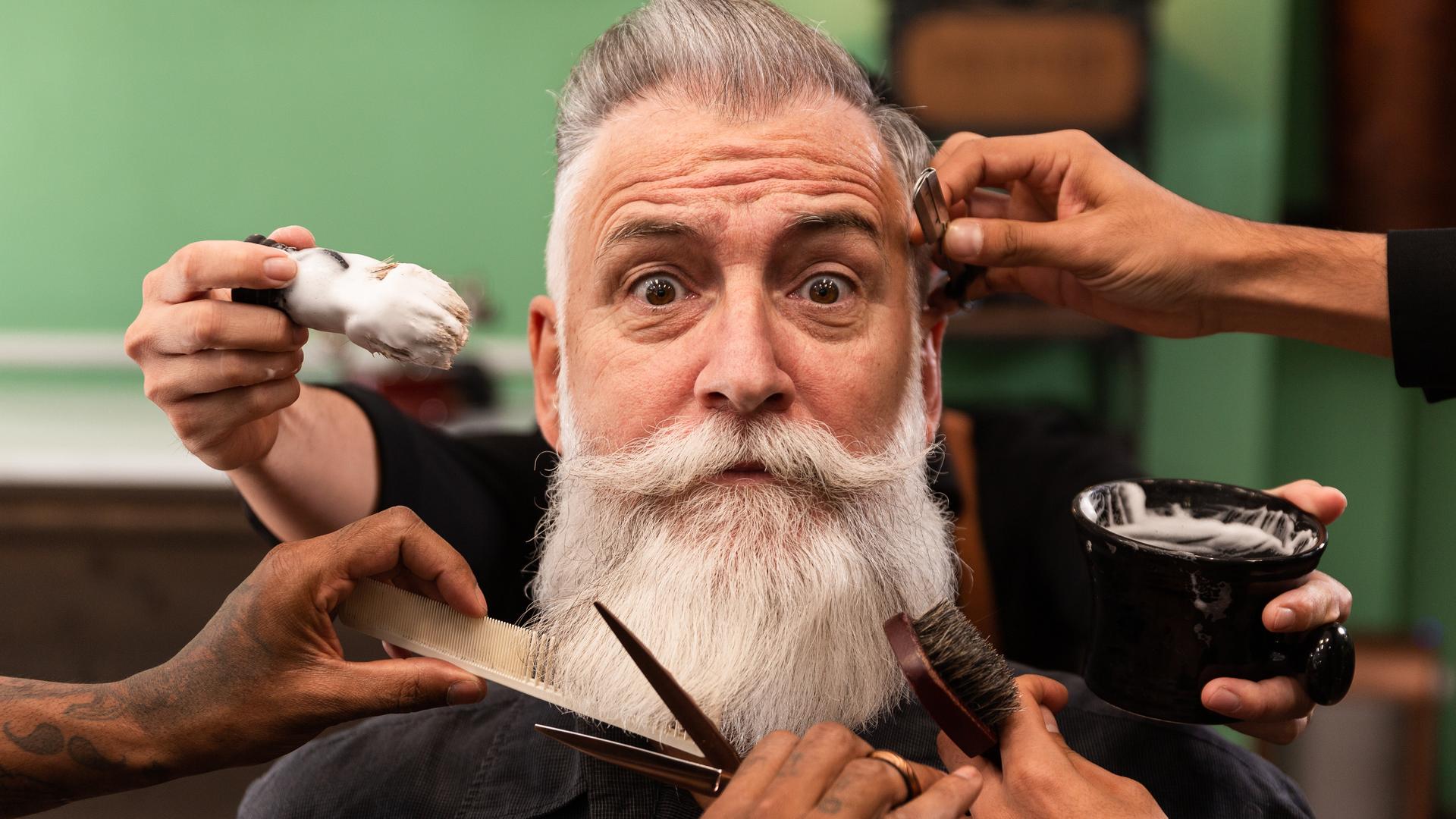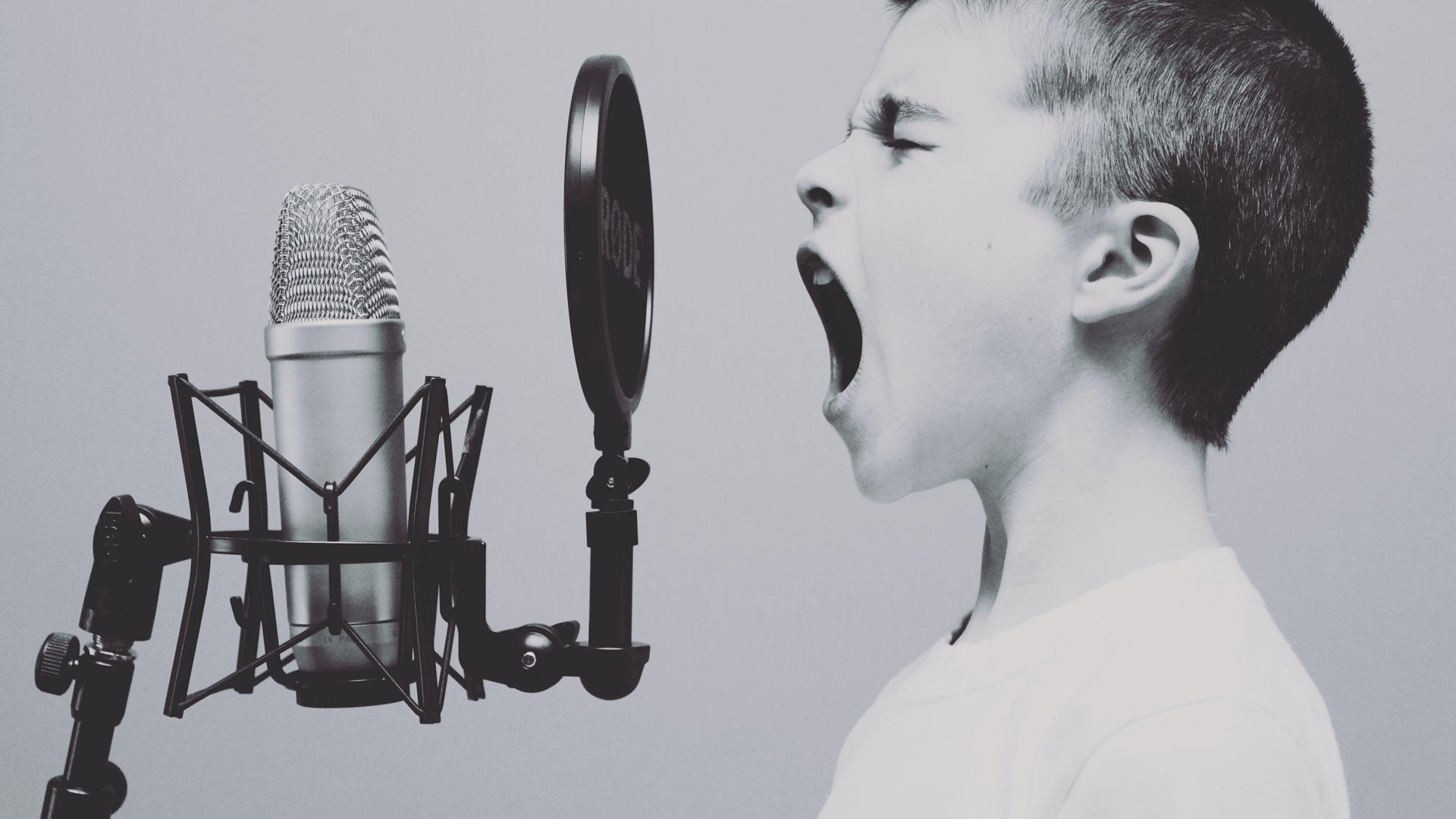

Welcome to Comedy 101, where you’ll learn everything you need to know to get started!
Be the comic who shows up ready, delivers the goods, thanks everyone, leaves no mess, and follows up with class. That’s how you build a reputation.
Every comedian has a “process.” Some meditate. Some free-write. Some stare into the abyss until it blinks first. My process? It’s what I like to call structured procrastination with a punchline.
Let me guess: You crack a joke at dinner and your kids give you that look. You know the one. The “Wow, Dad, please stop” look.
Don’t let it fool you. You’re funnier than you think. Your family just has immunity—like comedy vaccine boosters.
So, you’ve fallen head over heels for stand-up comedy. You’ve stood under the harsh glow of a single spotlight, told jokes to five strangers (and two of them laughed!), and now your Notes app is a graveyard of punchlines and half-formed setups.
You’ve caught the bug. And now comes the next terrifying challenge: telling your family.
You might be too fabulous. You might be too interesting. You might have too many hilarious life stories that younger comics would kill for. But too old? Nah.
Let me tell you something right out of the gate: every crappy job you’ve ever had is a comedy goldmine. You may not realize it now, but one day you’ll look back and say, “That humiliation paid my rent in laughs.”
So you’ve decided to dive into stand-up comedy. Congrats, you delightful masochist! You’ve found the one profession where emotional trauma is a resume booster. And now you’re standing in the back of a dark open mic, nervously clutching a notebook filled with half-thoughts and doodles that may or may not be punchlines…
So what’s a quick-witted, stage-starved comic to do when the gigs dry up and the landlord doesn’t accept “exposure” as payment? Here's my guide to side hustles for comics who want to survive the slow seasons without selling their soul or their self-respect.
If you’re feeling the icy grip of panic as you wait to grab the mic, congratulations — you’re alive, and you care. That fear is not the enemy. But letting it own you? That we’re not doing. Here's how to deal with stage fright like the professional funny person you're becoming.
If you're reading this, you're probably wondering how to get more than five minutes in the back of a pizza place at midnight. Well, buckle up, baby, because I’ve got the inside scoop.
Comedy isn’t just about being funny. It’s about being brave, resilient, and just a little nuts (in the best way). If you’ve got the heart, I promise you can build the rest.
Look at you. Sitting there, reading a blog post written by a fabulous gay man with cheekbones sharp enough to cut glass, wondering if you’ve got what it takes to do stand-up comedy. First of all—good taste. Second—maybe.
Great question. I’ve asked myself this very thing—usually right after bombing in a bar show next to a Golden Tee machine while a drunk guy yells “YOU SUCK, ELLEN!” (I mean… thank you?).
Alright, buckle up, buttercups! We’re diving into a comedy controversy hotter than my aunt’s chardonnay breath at Thanksgiving: Is crowd work considered standup?
Look, not every joke is gonna be a winner. Some jokes just aren’t meant to live past their first awkward chuckle—or worse, that silent vacuum where laughter should be but instead, you just hear your own self-esteem shattering like a glass dropped in a nightclub bathroom.
Here’s the thing about comedy: it all starts with the premise. So, what makes a good premise for a joke? Let’s break it down.
Here’s a solid checklist to make sure you keep evolving, stay true to your unique voice, and have fun on your comedic journey…
Stand-up comedy is an art form that captivates audiences with laughter and wit. However, behind the scenes, the world of stand-up comedians is often characterized by immense pressure, stress, and the constant pursuit of comedic brilliance.
In a world often fraught with stress, tension, and uncertainty, the timeless art of stand-up comedy serves as a beacon of light and laughter. From classic comedians to modern-day humorists, stand-up comedy plays a vital role in society, offering more than just entertainment. Its importance lies in its ability to connect people, provoke thought, and provide solace during challenging times.
The worst part of doing stand-up comedy can vary from person to person, but some common challenges include dealing with hecklers, facing a tough crowd that doesn't respond well, and the pressure to constantly come up with new material. Additionally, the vulnerability of putting yourself out there and the fear of not being funny can be daunting. However, many comedians find these challenges to be part of the thrill and excitement of the craft.
The Resilient Comedian: Navigating the Mental Challenges of Bombing. Being a comedian can be a thrilling yet challenging endeavor, as the stage is both a platform for laughter and vulnerability. Despite their best efforts, even the most seasoned comedians experience moments when their jokes fall flat and they face the dreaded "bombing" on stage. However, how a comedian mentally deals with bombing plays a crucial role in their growth, resilience, and continued success.
Stand-up comedy is a form of entertainment that has been around for centuries. It is a way for people to share their thoughts and experiences in a humorous way. Stand-up comics are important because they can make us laugh, think, and even challenge us. There are many reasons why stand-up comics are important…
As a new comedian, getting stage time is crucial for honing your skills, building confidence, and gaining exposure in the comedy world. While it can be challenging to secure stage time in the beginning, with persistence and a strategic approach, you can increase your chances of landing gigs.
Stage fright is a common fear that many people experience when they have to perform in front of others. It can cause a range of physical and emotional symptoms, but there are professionals who can help. Stage fright is a common fear, but it is possible to overcome it. With practice and preparation, you can learn to manage your anxiety and deliver a confident performance.
Finding one's comedic "voice" is a journey that varies for each comedian. It typically involves a combination of self-discovery, trial and error, and honing one's skills over time. Here are a few steps that comedians often take to develop their voice:
To become a stand-up comic, you'll need a few essential tools, but remember, becoming a stand-up comic requires persistence, dedication, and continuous improvement. It's a journey that involves constant learning and adaptation. Enjoy the process and keep refining your craft along the way!
Here are some reasons why so many people are wanting to try standup comedy and succeeding. Whatever the reason, it's clear that standup comedy is having a moment right now. And if you're thinking about giving it a try, I say go for it! It could be the start of a great new hobby or even a career.
Stand-up comedy, also known as stand-up, is a form of entertainment that involves a performer delivering humorous monologues or routines to an audience. It is one of the oldest and most popular forms of comedy, with a rich history that spans several centuries. From its origins in ancient Greece to the modern-day comedy clubs and streaming platforms, stand-up comedy has evolved and shaped the way we perceive humor and social commentary.
Getting started in stand-up comedy can be an exciting and rewarding journey. Here are ten steps to help you begin. But remember, comedy is subjective, and what works for one person may not work for another. Stay persistent, be yourself, and have fun with it. Good luck on your stand-up comedy journey!





























In recent years, the issue of safety and well-being for comedians has gained significant attention. The world of comedy, which thrives on pushing boundaries and challenging societal norms, occasionally blurs the line between humor and offense. One notable incident that ignited discussions surrounding comedian safety was the on-stage slap delivered by Will Smith to Chris Rock. This essay aims to examine the effects of that incident and shed light on the current state of safety for comedians.